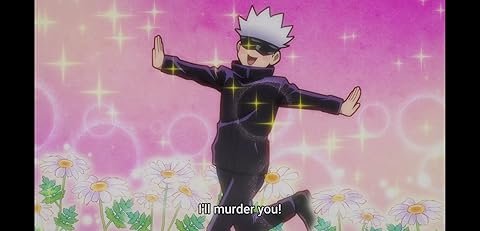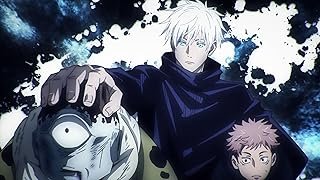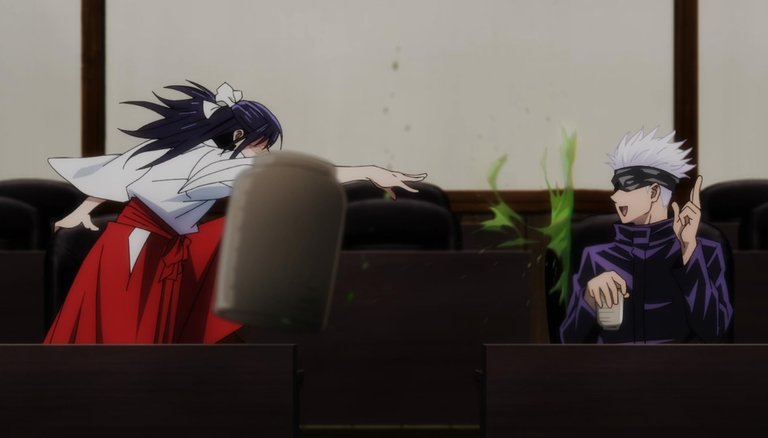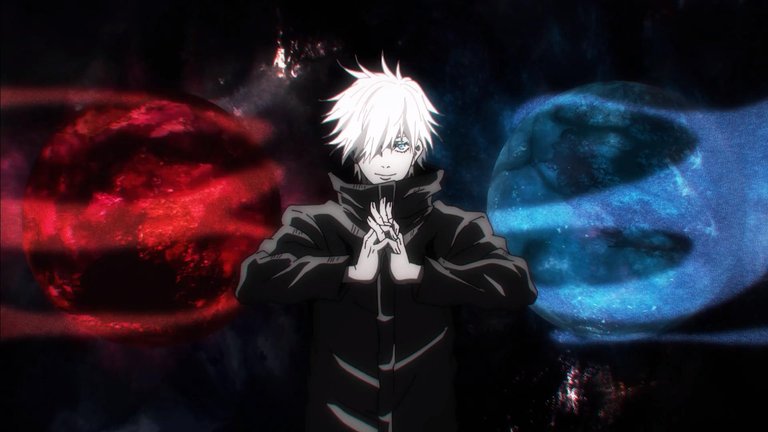Gojo es un profesor de la escuela de hechicería de Tokio, pero también es proclamado el hechicero más poderoso. Nació en una de las tres familias más importantes de hechiceros, siendo un fenómeno pocas veces visto en la historia, ya que nació con dos técnicas malditas hereditarias: los seis ojos y sin límites. Este fenómeno afectó negativamente su mundo, aumentando la cantidad de maldiciones existentes mientas se convertía en el centro de atención del mundo en el que vivía. Por estas razones fue apresado por su propio clan y atosigado por exigencias desde temprana edad. Gojo más allá de esto convive diariamente con una condición que es fundamental para entenderlo, un segundo en el mundo real es un minuto en su mente. Estas condiciones nos llevan a analizar los siguientes conceptos.
Esta es la incapacidad y falta de voluntad de una persona para cumplir con las obligaciones, compromisos o tareas asignadas de forma voluntaria u obligatoria. También indica las consecuencias de llevar a cabo un acto sin considerar previamente sus resultados. Es decir, las personas irresponsables tienen una escala de valores y de prioridades mal organizadas que rompen con el orden social establecido como correcto.
Gojo is a teacher at the school of sorcery in Tokyo, but he is also proclaimed the most powerful sorcerer. He was born into one of the three most important families of sorcerers, a phenomenon rarely seen in history, as he was born with two hereditary cursed techniques: the six eyes and limitless. This phenomenon negatively affected his world, increasing the amount of existing curses while he became the center of attention in the world in which he lived. For these reasons, he was imprisoned by his clan and harassed by demands from an early age. Gojo beyond this lives daily with a condition that is fundamental to understanding him, a second in the real world is a minute in his mind. These conditions lead us to analyze the following concepts.
This is the inability and unwillingness of a person to fulfill the obligations, commitments, or tasks assigned on a voluntary or mandatory basis. It also indicates the consequences of carrying out an act without previously considering its results. In other words, irresponsible people have a poorly organized scale of values and priorities that break with the social order established as correct.
The author of this work worked very well on Satoru's interventions and his decision-making based on this concept. This explains why despite being so influential and powerful he is usually absent or makes the most counterintuitive decisions than most viewers expect. Satoru has a habit of turning off his cell phone so as not to be disturbed, abandoning his work for trivial pursuits, choosing to travel by car or plane when he can fly or teleport himself in a matter of seconds, and deciding to use all sorts of creative and non-traditional learning methods so as not to have to engage in a task he finds cumbersome. Gojo is selfish most of the time and finds it hard to make difficult decisions, an example of this is in volume zero when he prefers to accommodate the confrontation between Yuta and Ghetto instead of confronting the latter directly.
These actions are signs of a mentality achieved after becoming independent from the yoke of his family, which is why the phrase: to snatch someone's youth is an unforgivable act. He is referring not only to Itadori but to himself.
The author of this work worked very well on Satoru's interventions and his decision-making based on this concept. This explains why despite being so influential and powerful he is usually absent or makes the most counterintuitive decisions than most viewers expect. Satoru has a habit of turning off his cell phone so as not to be disturbed, abandoning his work for trivial pursuits, choosing to travel by car or plane when he can fly or teleport himself in a matter of seconds, and deciding to use all sorts of creative and non-traditional learning methods so as not to have to engage in a task he finds cumbersome. Gojo is selfish most of the time and finds it hard to make difficult decisions, an example is in volume zero when he prefers to accommodate the confrontation between Yuta and Ghetto instead of confronting the latter directly.
These actions are signs of a mentality achieved after becoming independent from the yoke of his family, which is why the phrase: to snatch someone's youth is an unforgivable act. He is referring not only to Itadori but to himself.
Gojo escode tras su máscara de ser todo poderoso sus debilidades, busca crear a otras personas poderosas supuestamente para cambiar el sistema de forma altruista, cuando en realidad lo que intenta es aplacar la soledad de estar en la cima y dispersar sus responsabilidades para no demostrar su falta de carácter. Suguru Geto era su mejor amigo alguien a quien en su momento podía tratar como un igual. Por otra parte, a pesar de que las personas que más lo conocen lo ven como alguien retorcido o aterrador, intenta mantener una imagen de alguien tonto, agradable e ingenuo para ser aceptado socialmente. Esto lo podemos ver cuando Nanami lo compara con Magito. Su máscara social de una persona pacifica públicamente, oculta alguien que disfruta de la violencia.
Una frase de gran relevancia es la de Maquiavelo: el poder no es más que el dominio sobre otros hombres.
Saturo es muy consciente de su superioridad y hace uso de su poder para someter a las personas sin siquiera llegar a la violencia, abochornando y ridiculizando a todo aquel que se le opone.
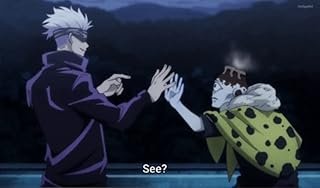
Otro que se nos sugiere desde el principio es la egolatría, al decirle a Itadori que no se preocupe ya que es el hechicero más fuerte que existe. Gojo no le interesan los deseos o gustos de las personas, él impondrá los suyos sin importar la escala de su elección, esto no los afirma Megumi al hablar con Itadori sobre el estilo de su uniforme o cuando menciona las razones por las que no mata a todas las personas que se le oponen en el mundo de la hechicería, es por pura conveniencia. Esta tendencia ególatra también justifica el nivel de poder demostrado por Satoru durante la historia. Él piensa que es infalible hasta que un suceso pone en riesgo su seguridad o las de sus deseos, de ahí que las muestras de poder demostradas en la actualidad sean muy superiores en las observadas en el volumen cero, ese hecho es el que lo lleva a un desarrollo más amplio de sus habilidades. Lo mismo sucedió en su juventud, para ese momento ya era conocido como el hechicero más fuerte por lo que en su delirio no existía manera de vencerlo.
Una frase que tomare de la mejor traducción que encontré es: En el cielo y en la tierra yo soy el único honrado. En este momento de éxtasis Gojo muestra su verdadero pensar sobre sí mismo, haciendo alusión a una deidad o a ser un semidiós entre los hombres.
Another one suggested to us from the beginning is egomania when telling Itadori not to worry as he is the strongest sorcerer. Gojo is not interested in people's desires or tastes, he will impose his own regardless of the scale of his choice, this is not stated by Megumi when talking to Itadori about the style of his uniform or when he mentions the reasons why he does not kill all the people who oppose him in the sorcery world, it is out of pure convenience. This egomaniacal tendency also justifies the level of power demonstrated by Satoru during the story. He thinks he is infallible until an event jeopardizes his safety or those of his desires, hence the displays of power demonstrated in the present are far superior to those observed in volume zero, that fact is what leads him to a further development of his abilities. The same happened in his youth, by that time he was already known as the strongest sorcerer so in his delirium there was no way to beat him.
A phrase that I will take from the best translation I found is: In heaven and on earth I am the only one honored. In this moment of ecstasy, Gojo shows his true thinking about himself, alluding to a deity or to being a demigod among men.
—Conclusiones
Satoru Gojo es un personaje al que se debe de analizar con calma, las aparentes incongruencias del personaje y al mismo tiempo su carisma lo llevan a ser interesante y atractivo incluso a nivel superficial. La naturaleza retorcida de su construcción que contrasta con acciones moralmente de bien o inofensivas hacia personajes que siguen estas filosofías lo obligan a demostrar una buena variedad de matices en pocas apariciones y nos recuerda que hasta el más poderoso de los hombres sigue siendo un humano.
-Conclusions
Satoru Gojo is a character that should be analyzed calmly, the apparent incongruities of the character and at the same time his charisma make him interesting and attractive even at a superficial level. The twisted nature of his construction that contrasts with morally good or harmless actions towards characters that follow these philosophies forces him to demonstrate a good variety of nuances in a few appearances and reminds us that even the most powerful of men is still human.
